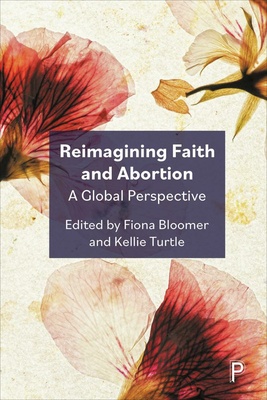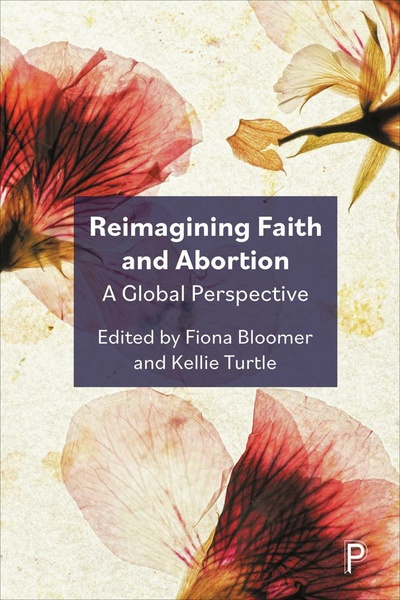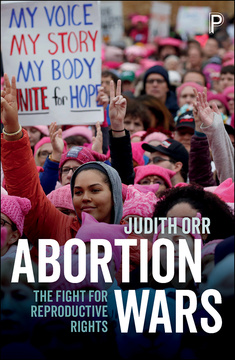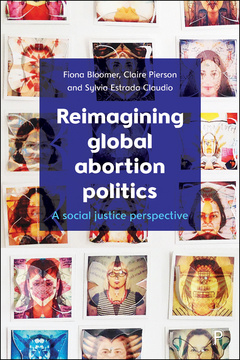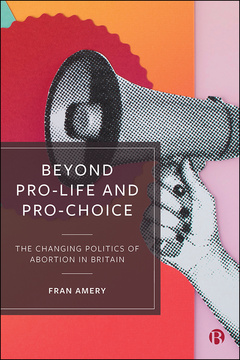Published
Jan 9, 2024Page count
210 pagesISBN
978-1447370154Dimensions
234 x 156 mmImprint
Policy PressPublished
Jan 9, 2024Page count
210 pagesISBN
978-1447370161Dimensions
234 x 156 mmImprint
Policy PressPublished
Jan 9, 2024Page count
210 pagesISBN
978-1447370161Dimensions
234 x 156 mmImprint
Policy PressIn this book, faith leaders, scholars and activists from around the globe provide their perspective on faith and abortion. They reflect on examples of faith organisations which have provided leadership on the issue as well as examining religious approaches from Buddhist, Christian, Jewish, Muslim and interfaith perspectives.
Challenging the assumption that all people of faith are anti-abortion, this book provides a counterpoint to right-wing faith perspectives and outlines how faith communities reimagine abortion as an issue of social, pastoral and theological concern.
Providing perspectives from the global North and South, it includes settings where abortion is legal, and where it is restricted, and settings where abortion stigma is ever-present to settings where abortion is normalised. It also demonstrates the complex connections between faith and abortion, how women and pregnant people are positioned in society and how morality is claimed and challenged.
“This edited collection offers an important corrective to the pervasive view that religion is always opposed to abortion. The chapters in this text – drawn from a range of religious traditions and international contexts – highlight that the relationship between religion and abortion is highly nuanced, complex and embodied.” Sarah-Jane Page, University of Nottingham
“The global need for abortion as part of maternal healthcare is escalating. This volume takes a thoughtful, interdisciplinary, social justice approach to the complexities and dangers facing pregnant people. The contributors situate abortion not at the margins of religious belief but at the vital core of living one’s faith as Buddhist, Christian, Jewish and Muslim. Reimagining Faith and Abortion is a must-read for anyone – religious or secular – who wants to understand the global movement for faith-based approaches to reproductive justice.” Margaret Kamitsuka, Oberlin College
Fiona Bloomer is Senior Lecturer in the School of Applied Social and Policy Sciences at Ulster University. Her research focuses on abortion, abortion policy and faith.
Kellie Turtle is Research Associate in the School of Applied Social and Policy Sciences at Ulster University. Her research examines the development of progressive faith discourse on abortion in Northern Ireland and its impact on abortion law and policy.
1. Introduction - Kellie Turtle and Fiona Bloomer
2. Redeemed by reproduction? Exploring compulsory motherhood and abortion stigma - Selina Palm
3. Suspending judgement: exploring pedagogical approaches that centre the contextual embodied experiences of those affected in the process of sexual reproductive health and rights decision making and ethical reflection - Charlene van der Walt
4. Pastoral guidelines through a reproductive justice lens - Emilie Weiderud
5. Abortion in Malaysia: challenges and necessity - Syarifatul Adibah
6. The power of religious voice in abortion law reform advocacy: inter-faith approaches to abortion law reform in Malawi - Brian Ligomeka
7. Abortion and faith in Latin America: an interfaith perspective - María de los Ángeles Roberto
8. Sri Lanka: abortion and Buddhism – a conversation with Dakshitha Wickremarathne - Dakshitha Wickremarathne and Fiona Bloomer
9. Reflections on faith-based abortion advocacy as the US faces a future without Roe: a conversation with Rabbi Danya Ruttenberg - Rabbi Danya Ruttenberg and Kellie Turtle
10. Marking the absence of an embodied theology: an analysis of how people of faith talk about abortion in Northern Ireland - Nóirín MacNamara and Fiona Bloomer
11. Seeds of hope in progressive Christian discourse on abortion in Northern Ireland - Kellie Turtle
12. Faith voices for reproductive justice in Northern Ireland - Kellie Turtle and participants from Faith Voices for Reproductive Justice
13. Conclusion - Kellie Turtle and Fiona Bloomer







